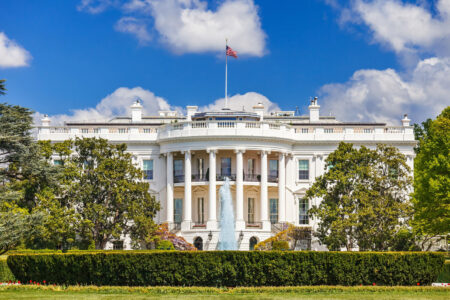The US Department of the Treasury has released a risk assessment of illegal financial flows through decentralized finance (DeFi). The agency takes a critical stance towards the sector and recommends that regulators implement stricter Know Your Customer (KYC) and Anti-Money Laundering (AML) requirements.
According to the Treasury Department, the report analyzes the risks associated with services commonly referred to as DeFi. The risk assessment builds on other recent analyses published by the Treasury Department and is part of its work related to the implementation of President Biden's executive order. Specifically, the department calls for stricter regulations by US regulatory agencies.
Treasury Department sees DeFi as money laundering vehicle
Although there is no generally accepted definition of DeFi, the term generally encompasses protocols and services for digital assets that enable automated peer-to-peer transactions with self-executing code or "smart contracts" based on blockchain technology, according to the Treasury Department. The term is often used loosely in the private sector, sometimes even for services that are not operationally decentralized. While the agency acknowledges some benefits of these technologies, the risk assessment focuses solely on the downsides of the sector.
Actors such as the Democratic People's Republic of Korea (DPRK), cybercriminals, ransomware attackers, thieves, and fraudsters reportedly use DeFi services for transferring and laundering their illegal proceeds, according to the Treasury Department. Criminal organizations benefit from a lack of anti-money laundering and counter-terrorism financing (AML/CFT) measures, which many DeFi services do not implement despite being required to do so.
"Our assessment has found that criminal actors [...] use DeFi services to launder illegal funds. To realize the potential benefits of DeFi services, these risks must be addressed. The private sector should use the findings of this assessment as a basis for their own risk mitigation strategies and take clear steps in accordance with existing regulations to prevent illegal actors from abusing DeFi services." - Brian E. Nelso, Deputy Secretary of the Treasury for Terrorism and Financial Crimes
Decentralization not a valid pretext
The largest vulnerability exploited by illegal actors is the non-compliance with obligations to combat money laundering and terrorist financing, as well as sanctions. DeFi services that engage in activities covered by the Bank Secrecy Act are also subject to AML/CFT obligations, according to the Treasury Department. This applies regardless of whether the protocols are allegedly decentralized or intended to be decentralized. A clear challenge to leading DeFi teams based in the United States.
While risk assessments primarily serve to determine the extent of a problem, the Treasury Department's study also contains concrete recommendations for the government. After all, it is crucial to mitigate these risks of illegal financing through DeFi applications early on. The proposals include:
- Strengthening AML/CFT supervision in the US
- Considering additional guidelines for the private sector on the AML/CFT obligations of DeFi services
- Assessing measures to close any AML/CFT legal gaps related to DeFi services




